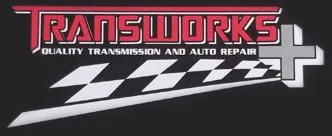East Bethel, MN
Call Us 763-413-7001
FREE Estimates | Factory Warranties on New Auto Parts
Explore our auto repair blog for valuable tips, trends, and maintenance advice


Seasonal Maintenance Checklist for Cars in East Bethel, MN
Minnesota weather doesn’t play favorites. From below-zero winters to humid summers and muddy spring roads, East Bethel drivers face some of the toughest seasonal shifts in the country. Those changes don’t just affect comfort — they put real stress on your car’s engine, tires, and electrical systems.
At Transworks Plus, we see the same pattern every year: breakdowns and costly repairs that could’ve been prevented with timely seasonal maintenance. Whether it’s preparing for snow or beating summer heat, a simple checklist keeps your vehicle dependable year-round.
Here’s your complete, season-by-season guide to keeping your car running strong in East Bethel, Minnesota.
Why Seasonal Maintenance Matters in Minnesota
Every season brings different mechanical challenges. Cold snaps thicken fluids, heat strains cooling systems, and road salt accelerates corrosion. Performing targeted inspections before each season changes protects performance, extends component life, and saves money over time.
A seasonal maintenance routine helps with:
Reliability: Reduces the risk of sudden failure during extreme weather.
Safety: Ensures tires, brakes, and lights work properly year-round.
Fuel efficiency: Maintains ideal operating temperatures and air intake.
Resale value: A well-documented maintenance record boosts trade-in appeal.
Simply put, preventive care beats reactive repairs every time — especially in Minnesota’s unpredictable climate.
Spring: Recovering from Winter
Spring in East Bethel means thawing roads, rain, and potholes. After months of cold and salt exposure, your vehicle deserves a reset.
Checklist for spring:
Inspect brakes and rotors. Salt and moisture can cause corrosion and uneven wear.
Check suspension and alignment. Potholes often throw alignment off, causing uneven tire wear.
Wash the undercarriage. Remove residual road salt to prevent long-term rust.
Replace windshield wipers. Winter ice dulls and tears rubber blades.
Test the battery. Freezing temperatures weaken battery cells; spring is when weak ones fail.
Check tire pressure. Cold air shrinks tire volume; warmer air expands it, changing PSI.
Spring is also a great time for a full inspection at Transworks Plus — to identify any hidden damage from winter driving before summer trips begin.
Summer: Protecting Against Heat
Hot weather tests your cooling system and electrical components more than any other season.
Checklist for summer:
Flush and refill coolant. Old coolant loses corrosion inhibitors and boiling protection.
Inspect the radiator and hoses. Look for cracks, leaks, or swelling.
Test the air conditioning. Low refrigerant or weak airflow can signal compressor issues.
Examine tires for cracks or bulges. Heat expands air inside tires, sometimes revealing weak spots.
Check oil levels and viscosity. High temperatures demand oil with proper resistance to breakdown.
Clean the cabin air filter. Summer pollen and dust reduce airflow and strain HVAC systems.
If you’re planning road trips, this is also the time to verify your spare tire, jack, and roadside kit are all in working order.
Fall: Prepping for the Freeze
Fall is all about prevention. As temperatures drop, moisture and early frost start the slow buildup that can cause winter breakdowns.
Checklist for fall:
Replace worn belts and hoses. Cold weather can make rubber brittle and prone to cracking.
Inspect your heating system. Make sure the defroster and cabin heat work before the first frost.
Check tire tread depth. Replace summer or worn all-season tires with winter-rated options.
Top off all fluids. Ensure washer, brake, and transmission fluids are full and at proper viscosity.
Test headlights and taillights. Shorter days mean more night driving — you’ll want clear visibility.
Fall maintenance is your last chance to fix minor issues before freezing temperatures lock them in.
Winter: Surviving the Cold
Minnesota winters test vehicles like nowhere else. Salt, ice, and subzero starts require a different level of readiness.
Checklist for winter:
Install winter tires. Softer rubber and deeper tread improve traction on snow and ice.
Check antifreeze strength. A 50/50 mix protects against freezing down to -34°F.
Inspect the battery and charging system. Batteries lose about 60% of their power at 0°F.
Use winter-grade wiper fluid. Standard blends can freeze in nozzles.
Lubricate door seals and locks. Prevent them from freezing shut.
Keep the gas tank at least half full. Reduces condensation and keeps fuel lines from freezing.
Check exhaust and heater operation. A blocked exhaust can cause dangerous carbon monoxide buildup.
At Transworks Plus, we often recommend a winter readiness inspection in late October or early November. It’s the best way to ensure your brakes, fluids, and tires are ready for the first snow.
The Importance of Year-Round Inspections
While these checklists cover each season, consistency is what keeps your car reliable. A professional inspection at least twice a year helps detect problems before they become safety hazards.
Regular multi-point inspections include:
Checking belts, hoses, and filters.
Testing fluid levels and condition.
Measuring brake pad and rotor wear.
Inspecting tire alignment and tread depth.
Evaluating battery charge and corrosion.
Routine inspections are especially important for East Bethel’s variable roads, where gravel, moisture, and freezing temperatures create stress that other climates don’t.
FAQs About Seasonal Maintenance
How often should I change my oil in Minnesota?
Typically every 5,000–7,000 miles for modern vehicles, but shorter intervals may be needed in extreme cold or frequent stop-and-go driving.
Do I really need winter tires?
Yes — all-season tires harden below 45°F, reducing grip. Winter tires remain flexible and improve safety in snow and ice.
Is it safe to use water in my coolant system?
No. Plain water freezes easily and lacks corrosion protection. Always use a 50/50 antifreeze blend rated for subzero temperatures.
Can I skip spring maintenance if I didn’t drive much in winter?
Even limited winter driving exposes your vehicle to salt and condensation. Cleaning and inspection are still essential.
What’s the best time to get a full inspection?
Twice a year: once in spring, once before winter. These are the transitional points when temperature extremes can cause new problems.
Keep Your Car Ready for Every Season
Your car’s needs change with the seasons — and staying ahead of them keeps you safe, efficient, and worry-free on Minnesota roads. From alignment checks to fluid flushes, Transworks Plus helps East Bethel drivers handle everything the weather throws their way.
A 30-minute inspection today can prevent a breakdown tomorrow — and that’s what smart maintenance is all about.

Schedule Your Auto Services Today
Keep your vehicle in top condition with our professional maintenance services. Book your next appointment now to ensure your car runs smoothly and efficiently.
Get started on reliable vehicle performance today.
FOR DIAGNOSTICS, MAINTENANCE, OR ANY AUTO REPAIR NEEDS

CALL US
(763) 4137 001

AUTO SERVICES

CONTACT INFORMATION
Call us: 763-413-7001
Address:
18607 MN-65, East Bethel, MN 55011
Business Hours
Mon - Fri: 7:30 AM– 5:00 PM
Sat & Sun: Closed
© 2025 All Rights Reserved | Transworks Plus | Privacy Policy
